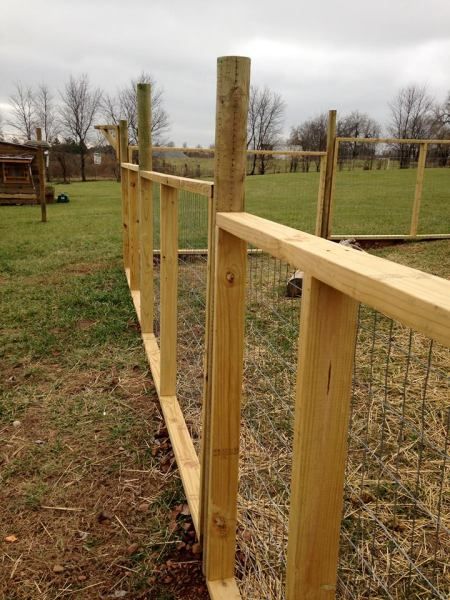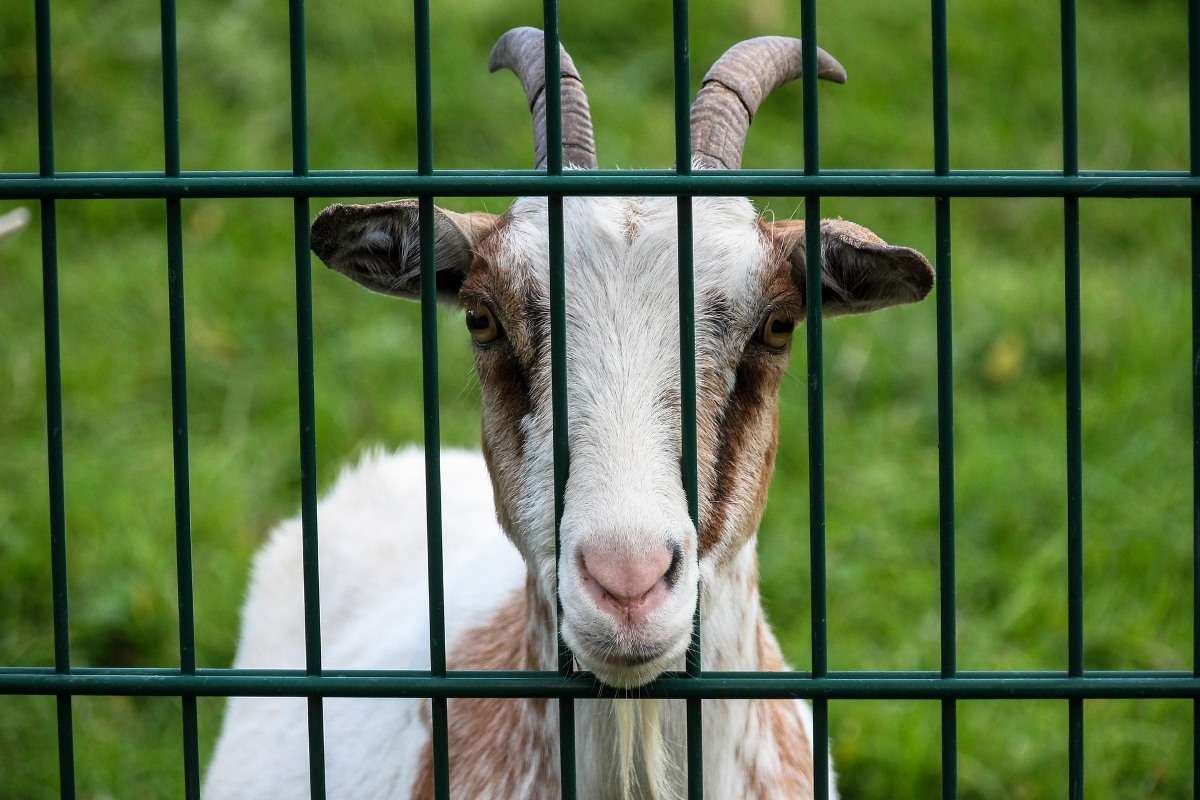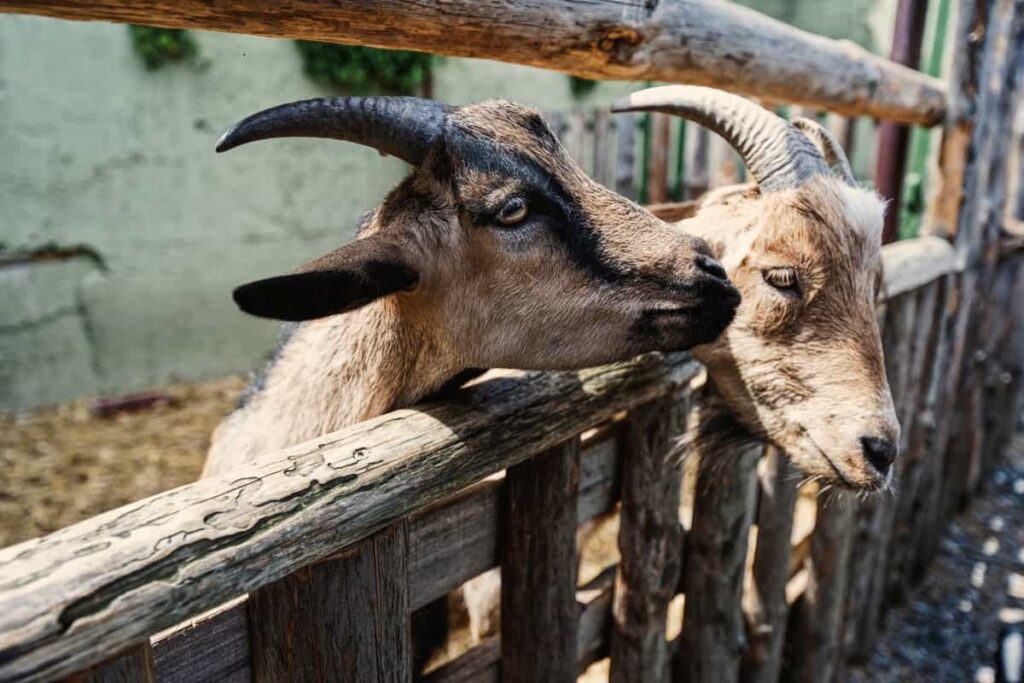You must have a strong fence around your land if you want to keep goats there. Putting up a goat fence is an important way to keep your goats safe and contained.
It also keeps them from grazing in your gardens, landscaping, and other valuable areas. But before you start having goats, you must know how much goat fencing will cost. This piece will talk about the different things that affect how much goat fencing costs and give you a good idea of how much you can expect to pay.
Also, we talked about easy and cheap goat fence ideas that will help you find the best mix between function and cost-effectiveness, keeping your goats safe without breaking the bank.
Factors Affecting the Cost of Goat Fencing

1. Fencing Materials
The type of fence material you choose has a big effect on how much it costs altogether. Common things used to fence in goats are:
- Woven wire fencing: Woven wire fencing is a strong choice that works well for goat pens. The price per straight foot ranges from about $1.50 to $4.00, depending on the height and gauge of the wire.
- Electric Fence: Because it costs less upfront, an electric fence is a better choice for people on a budget. However, it might need regular upkeep and electricity bills.
- Chain Link Fencing: Chain link fencing is strong and lasts a long time, but it costs more than other choices, averaging between $7 and $12 per linear foot.
- Wooden Fencing: Wooden fences have a rustic look and last a long time, but they can be pricey, especially for bigger areas, costing an average of $5 to $15 per linear foot.
2. Fence Height
One very important thing to think about is the fence’s height. For most goat breeds, walls that are 4 to 5 feet high are too low. If you have goats that are very fast or big, though, you might need even higher fences, which can cost more.
3. Length of the Fence
The length of the fence you need depends on how big your goat pen is. Costs will be higher for bigger places because you’ll need more materials. For instance, to fence in a 100-foot-by-200-foot rectangle, you would need 600 square feet of fencing around the outside.
4. Preparing the Terrain and Ground
If your land has rough terrain, rocky soil, or many plants, you may need to do more work to prepare the ground and make custom fences. Both the cost of work and the cost of materials can go up because of these things.
5. Gates and Accessories
The total cost is also affected by how many and what kind of gates you need. Accessories like strong gate posts, corner braces, insulators for electric fences, tensioners, and gate latches can also add to your costs.
6. Labor Costs
If you hire professionals to put up the fence, you must also pay for their time. This cost can change based on how hard the job is, how much work costs in your area, and how big your fencing project is.
How Much Does Goat Fencing Cost?

For a more exact estimate, let’s look at an example. Let’s say you are putting up a four-foot-tall woven
wire fence with two gates around a 100-foot by 200-foot (20,000 square-foot) area. Here’s a full list of all the possible costs:
- The price range of woven wire fencing is around $1.50 to $4.00 per linear foot.
- Each gate costs $100 to $300.
- Labor (if hired): Varies depending on the place and difficulty level.
Based on these figures, the cost of the fencing materials alone could be anywhere from $3000 to $8000. Gates and labor will also cost extra. Remember that this is just a rough estimate; the real cost will depend on where you live and what you need.
Conclusion
Getting the right goal fence is an important part of being a responsible goat owner. It keeps your animals safe and healthy and keeps your property from getting damaged. The price of goat fencing varies on several things, such as the type of material used, the fence’s height, length, terrain, and any extra extras.
Talking to local fencing professionals is the best way to get an exact cost estimate for your situation. Carefully plan your goat enclosure to meet both your budget and your goat’s needs.
You can get the benefits of having a goat while keeping your costs low by doing this.
Frequently Asked Questions
What Factors Affect the Price of Goat Fences the Most, and How Can I Make the Best Use of My Budget?
Material for the fence, fence height, length, terrain, gates, and work are the main factors affecting the cost. Think about your unique needs to set priorities for your budget. For example, buy a material that will last, but save money by picking the right height and avoiding making too many environmental changes that require a lot of work.
Do Different Types of Goat Fences Require Different Amounts of Upkeep Over Time?
Yes, the cost of ongoing upkeep can change based on the material. For instance, wooden fencing might need to be stained or painted every so often, while electric fencing might need fixes or new batteries every so often. Most of the time, a woven wire fence doesn’t need much upkeep.
Do I Really Need a Professional to Build My Fence, or Is It Possible to Save Money by Doing It Myself?
If you do the work yourself, you can save money on labor, but you must ensure you have the right skills and tools. Professional installation ensures everything is set up correctly and can be especially helpful if you have a rough ground or a large area to fence.

